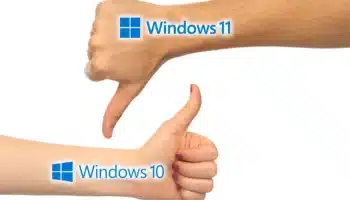Engineer Demonstrates iPhone Hack After Acknowledging Apple's Patch
Though security consultant Charlie Miller went through with a scheduled demonstration late yesterday afternoon of how he and his colleagues discovered how to hack the Apple iPhone to obtain personally identifiable information from it, he and his company's Web site both acknowledged that Apple had patched the vulnerability.
The demonstration took place at the BlackHat convention in Las Vegas, where apparently Miller used an unpatched iPhone. Though the specific hole Miller discovered was apparently sealed over, the techniques he demonstrated for uncovering those techniques, and the information he learned along the way, indicate that this may not be the only hole to emerge from what could be characterized as a design flaw.
PS3 Sales Recover in Japan
Sales of Sony's PlayStation 3 recovered somewhat in Japan in July, closing the gap between it and market leader Nintendo according to sales data compiled by Japanese gaming publisher Enterbrain. The PS3 is now being outsold by the Wii by a four to one margin, as opposed to the six to one margin in June. By the numbers, the Wii sold 396,752 consoles to the PS3's 91,987 units. The Xbox 360 sold 17,970.
There really is no single reason that the uptick in sales can be pinned to. However, Sony has made a concerted effort to get more gaming titles on store shelves. This, along with the PS3's high price, have been seen as the biggest problems that it needs to overcome. The Wii sells for 25,000 yen in Japan, half the price of the base-level PS3.
'Open Access' Wireless Auction Could Be All for Naught
Tuesday's 4-1 vote by the US Federal Communications Commission begins a process whereby a portion of the UHF television spectrum - specifically, between 775 and 793 MHz, in the midst of what we now call Channels 64 through 67 - would be auctioned off only to companies willing to keep a promise: To allow customers of wireless services they deploy on that spectrum to use the devices of their choice, rather than the ones the carriers choose for them; they could use any applications they wish on those devices; and they would make their services available to public safety in emergencies.
Google had hoped for a few more concessions on the FCC's part, one being a net neutrality promise not to resell frequencies to select customers at discount rates, the other being a promise to allow smaller companies to purchase access to frequencies at wholesale rates.
Amazon Considers Net Grocery Service
Amazon disclosed Thursday that it has begun testing an online grocery service to residents of a Seattle suburb. The effort mirrors similar but unsuccessful startups that appeared during the dot-com boom.
Those names -- WebVan and HomeGrocer.com -- read like a who's who of the dot com bust. Sales never managed to match the huge amount of capital investment the companies had to make in order to launch the services.
Google, The Mobile Phone Manufacturer?
Google has been testing the waters in the wireless industry, seeing if there is enough support for it to offer mobile phones customized to include various services provided by the company.
While the company will not manufacture the devices directly, it has apparently provided a list of specs to manufacturers, the Wall Street Journal reports. It has also apparently talked with at least two carriers, Verizon and T-Mobile.
Did Apple Patch the iPhone Just in Time for BlackHat?
Yesterday, the US Dept. of Homeland Security acknowledged Apple's release of a set of security updates for its new iPhone. As the device's widespread popularity will bring it under much closer scrutiny than for any other smart phone, and also make it the target of attempted attacks, this release marks the first test of Apple's ability to respond to security threats under pressure.
Judging from descriptions on Apple's Web site, the first series of patches addresses a vulnerability that was the subject of a discovery by security researcher Charlie Miller and colleague Jake Honoroff. Apple credited the pair with the discovery of what its security page describes as a heap buffer overflow problem.
VMware Completes Mac Virtualization Software
VMware on Thursday announced it has completed development of "Fusion," the company's desktop virtualization software for Macs, which enables Apple computers to run Windows or Linux from within Mac OS X. VMware said over 250,000 people had downloaded the Fusion beta release since December.
VMware is going head-to-head with Parallels, the current market leader for virtual machine software on Macs, which has become possible with Apple's switch to Intel processors. Both Parallels 3.0 and VMware Fusion cost $79.99 USD and are available to download online. VMware says Fusion supports more operating systems and includes power management safeguards so a virtual machine isn't corrupted if a laptop runs out of battery. More information can be found on VMware's Web site.
Apple Renews Microsoft Font License
At TypeCon2007 Thursday, Apple renewed its font licensing agreement with Microsoft, which gives users of Mac OS X access to the core fonts in Windows. The deal covers popular document and Web fonts, including Times New Roman, Arial and Verdana.
The two companies did not say how long the new agreement will last, although it's unlikely that Microsoft would ever prevent Apple customers from using its fonts - especially since the company offers software for the rival platform. The joint press release notes that, "Apple continues to lead the industry in innovation with its award-winning computers, OS X operating system and iLife and professional applications."
Microsoft to Offer Free Version of Works
Microsoft said Wednesday that it will test out a version of its Microsoft Works productivity suite with computer manufacturers that would be free and ad-supported.
Works' place in Microsoft's portfolio has been in question as the company focuses more on its Office suite. Additionally, the company is facing increasing pressure from competitors such as Google, who are offering similar Web-based products at no cost.
Google, Microsoft File FTC Complaint Against NFL, MLB, NBCU
Claiming that copyright warnings are "misleading consumers," the Computer & Communications Industry Association - a trade organization whose more prominent members include Microsoft and Google - filed a formal complaint with the US Federal Trade Commission yesterday. Targeted by the complaint were the two premiere sports leagues, two movie producers, and two book publishers.
The group's claim is that everyday users may be intimidated by the tone of these groups' copyright warnings, to such an extent that their rights to use the material they produce, as protected by US law, is infringed. But the CCIA's language rises even higher than that, accusing the subjects of the complaint with "a nationwide pattern of unfair and deceptive trade practices by misrepresenting consumer rights under copyright law."
Microsoft Delays New Office for Mac
Citing a desire to "deliver a high-quality product," Microsoft's Macintosh Business Unit said Thursday that Office 2008 for Mac will not be ready before the end of the year as previously planned. Instead, the long-awaited product will reach customers in mid-January 2008.
The last major release of Office for Mac OS X came in 2004, and customers have been clamoring for an update since the 2006 switch to Intel-based Macs, as Office still requires use of the Rosetta emulation layer that slows the software down. For a brief while, there was a question whether Microsoft would even continue development of Office for Mac.
Microsoft Blames Family for Xbox Fire, Infant Death
In a move that was largely expected legally, but could prove more difficult to explain to the media and consumers, Microsoft is asking a court to dismiss a lawsuit that claims an Xbox caught fire and led to the death of an infant. Microsoft says the baby's parents are to blame for abusing the Xbox.
It's not clear what exact "abuse" Microsoft is claiming, although it says the Kline family "knowingly, willingly, intentionally, and voluntarily exposed themselves to said danger and assumed the risk of incident." Microsoft had recalled over 14 million Xbox power cords in February 2005 due to fire risks, and it's not clear if the family participated in that recall. Microsoft is also demanding the Klines pay for the company's legal costs.
Adobe Drops Kinko's Button from Reader, Acrobat
Responding to a swarm of criticism regarding its integration of a prominent button in its Reader and Acrobat software that enables customers to print their .PDF files at a local FedEx Kinko's, Adobe said Thursday it will be removing the option in a software update this October.
Most complaints came from "mom and pop" establishments who do not have a large customer base to begin with and could lose customers due to the convenience factor of the built-in button. Adobe claims it needs some time to remove the feature, which it turns out was an easy decision because the company makes little money from the FedEx deal. A special version of Adobe Reader with the button will be offered from the Kinko's Web site.
Massachusetts: MS Open XML Now in Equal Standing with ODF
Late today, the Commonwealth of Massachusetts announced that it has formally ratified the 4.0 version of its Enterprise Technical Reference Policy. As a result, Microsoft's Office Open XML format -- recently ratified by the ECMA standards body -- is now considered in equal stature with OASIS' OpenDocument Format, for use by state employees.
The ratification officially codifies Massachusetts' approval last month of the new default format of Microsoft Office 2007, and opens a new chapter in the strange controversy over something as seemingly uninteresting on the surface as storage formats. A public institution's choice of storage formats dictates the applications its workers use to utilize those formats. Massachusetts has not rejected ODF, nor is it considering ODF in some sort of alternate or subservient stance with respect to OOXML.
Bluetooth SIG Approves 2.1+EDR Spec
The Bluetooth SIG said Wednesday that it had approved a new specification that would allow some devices to pair faster and easier, as well as bringing other enhancements to improve the overall experience. Called Bluetooth 2.1+EDR, it would pave the way for devices that use Near-Field Communication (NFC) and even auto-paring among devices that support it.
Power optimization features are part of the new specification, which in some cases would increase battery life of devices using Bluetooth. In addition, Bluetooth 2.1+EDR includes enhancements to improve security, the SIG said in a statement. "This leap forward in usability further improves the Bluetooth experience and makes the technology easy for anyone to enjoy," Bluetooth SIG executive director Dr. Michael Foley said.
Most Commented Stories
BetaNews, your source for breaking tech news, reviews, and in-depth reporting since 1998.
Regional iGaming Content
© 1998-2025 BetaNews, Inc. All Rights Reserved. About Us - Privacy Policy - Cookie Policy - Sitemap.




